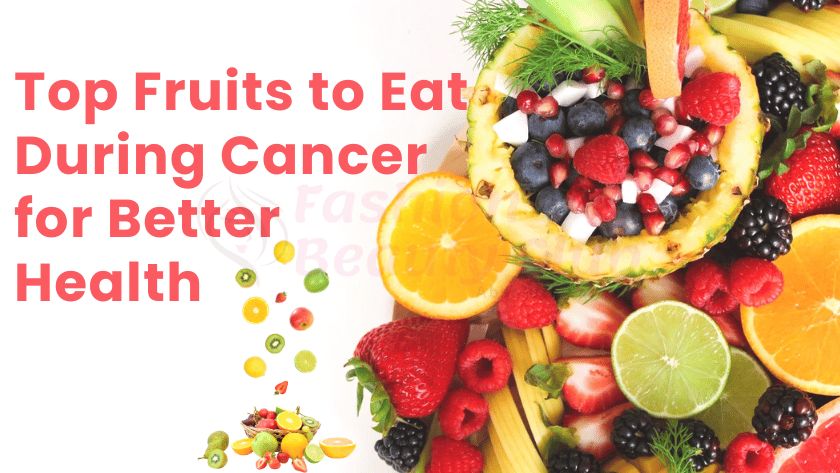When you’re fighting cancer, eating the right food can help your body recover and stay strong. Fruits are packed with vitamins, minerals, and antioxidants that boost your immune system, reduce inflammation, and keep you healthy. Let’s discover the best fruits to eat during cancer treatment and why they’re so helpful! 🍎🍓
Why Are Fruits Important During Cancer Treatment? 🌿
Fruits are nature’s superfoods! Here’s how they help:
🌟 Antioxidants: Protect your cells from damage caused by free radicals.
🌟 Vitamins and Minerals: Support your body’s repair and energy functions.
🌟 Dietary Fiber: Helps with digestion and prevents constipation.
🌟 Hydration: Fruits with high water content keep you hydrated.
Best Fruits to Eat During Cancer Treatment 🍉🍊
Here are some of the top fruits to include in your diet:
1. Berries (Blueberries, Strawberries, Raspberries) 🍇
Benefits: Rich in antioxidants like anthocyanins that protect cells.
Nutrients: High in Vitamin C, fiber, and natural compounds that fight inflammation.
How to Eat: Add to smoothies, yogurt, or eat fresh as a snack.
Benefits: Boost your immune system and help your body absorb iron.
Nutrients: Loaded with Vitamin C and flavonoids that reduce inflammation.
How to Eat: Enjoy fresh juice or eat slices.
Benefits: Easy to digest and help manage nausea.
Nutrients: High in potassium to balance electrolytes.
How to Eat: Mash into oatmeal or eat as a quick snack.
Benefits: Contains papain, an enzyme that helps with digestion.
Nutrients: Rich in Vitamins A and C and lycopene, an antioxidant.
How to Eat: Eat fresh or blend into a smoothie.
Benefits: Pectin in apples supports gut health and digestion.
Nutrients: Contains Vitamin C and quercetin, which fights inflammation.
How to Eat: Eat raw with the skin or bake for a warm treat.
Benefits: May help fight cancer cells and improve heart health.
Nutrients: Packed with polyphenols, antioxidants, and Vitamin C.
How to Eat: Enjoy the seeds or drink as juice.
Benefits: Keeps you hydrated and provides refreshing nutrients.
Nutrients: High in Vitamins A and C and lycopene.
How to Eat: Slice and eat fresh or blend into juice.
Benefits: Provides healthy fats for energy and better nutrient absorption.
Nutrients: High in potassium and Vitamin E.
How to Eat: Add to salads or spread on whole-grain toast.
Benefits: Boosts immunity with its high Vitamin C content.
Nutrients: Contains fiber and antioxidants for digestion and health.
How to Eat: Slice and enjoy as a snack or mix into a fruit salad.
Tips for Adding Fruits to Your Diet 🍍
- 🍏 Choose Fresh or Frozen: Fresh or frozen fruits give maximum nutrients.
- 🍉 Go Organic: Organic fruits reduce pesticide risks.
- 🍋 Wash Thoroughly: Always wash fruits to avoid infections.
- 🍐 Blend or Cook: For easier digestion, blend fruits into smoothies or cook them.
- 📊 Monitor Sugar: Eat fruits in moderation to avoid too much sugar.
Fruits to Avoid During Cancer Treatment ⚠️
While most fruits are beneficial, some may not suit everyone:
- Unripe Fruits: Hard to digest and may cause discomfort.
- High-Acid Fruits: Citrus fruits may irritate mouth sores.
- Tough Skinned Fruits: Pineapples or raw pears can be hard to chew.
Final Thoughts 🍍
Eating the right fruits can help your body during cancer treatment. Focus on fruits like berries, papaya, and watermelon to boost your recovery. Always consult your doctor or a nutritionist for personalized advice. By making smart food choices, you can improve your health and feel stronger every day. 🍀💪




